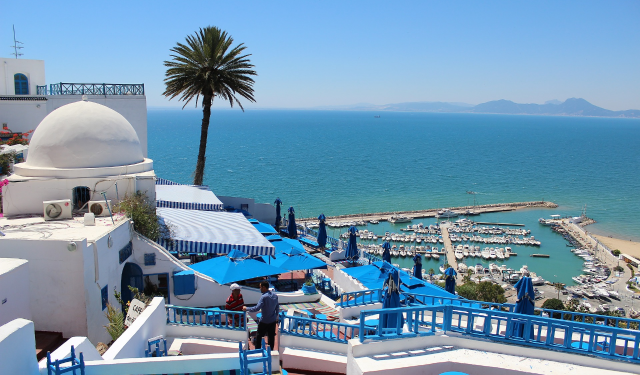The World Bank calls on Tunisia to engage in the blue economy – The World Bank (WB) believes that Tunisia should put in place priority measures and actions to be taken as part of its roadmap for a transition to the blue economy, which constitutes “an opportunity for sustainable development and creation wealth for the country”.
In a report entitled “Opportunity for integrated and sustainable development of the sea and coastal zones” published on Thursday January 26, 2023, the WB recommends instituting institutional governance involving all stakeholders and ensuring coordination and coherence of public policies, strategies, and sectoral plans and programs.
The International Financial Institution also advocates for the promotion of “appropriate” and “innovative” resources and financing mechanisms for blue economy programs and projects.
In this context, an in-depth analysis of the financial investments necessary for the effective development of the blue economy is required, with a view to identifying innovative financing for blue growth (bond issues, insurance products, public-private partnership and private investments), establish appropriate taxation and develop incentives for climate-resilient blue investments at sea and on the coast.
The blue economy contributes almost 14% of the national GDP
The World Bank recalls that Tunisia benefits from more than 1,300 km of coastline, home to 7.6 million people (i.e. more than 66% of its total population), who depend heavily on coastal and marine resources for their livelihood.
Therefore, the blue economy, which contributes almost 14% to the national GDP, represents a “certain opportunity”, for the diversification of its maritime and coastal economy.
To take advantage of this opportunity and advance the blue economy, the World Bank considers it essential to pay particular attention to the coastal and maritime natural capital which today shows “worrying signs of overexploitation and degradation, both in both continental and marine environments”.
This capital is often the support for all socio-economic activities at sea and on the coast, hence the imperative to protect and preserve marine and coastal assets through the conservation of marine and coastal areas and their biodiversity.
This will condition the sustainability and performance of all the components of the blue economy, indicates the same source.
Need for resilience of marine and coastal resources
The Bank also highlighted the need to develop the resilience of marine and coastal resources to climate change, promoting the resilience of key blue economy sectors such as tourism, fisheries and aquaculture.
It calls for preventing and managing marine and coastal pollution of all kinds and in particular by plastics and for developing sustainable marine and coastal tourism that is resilient to climate change.
Change the law
On the legal level, despite an extensive arsenal in the maritime and coastal areas, there is a need today, argues the WB, to promote harmonization of sectoral and disparate texts, and to fill legislative and regulatory gaps in some areas.
For the WB, the ability to develop and manage knowledge in this area remains a “no less important” condition in order to develop the blue economy in Tunisia.
Develop digital information systems
She also called for the development of functional and accessible digital and geographical information systems for all users of the coast and the sea, stressing that investment in knowledge would constitute “a major pillar in the future strategy of blue economy of Tunisia”.
The World Bank has mobilized the PROBLUE trust fund to undertake the second phase of technical assistance, supporting a roadmap for the development of the blue economy in Tunisia.
The second phase of the Bank’s assistance to Tunisia will consist of a series of analyzes and advice on institutional policies, promotion of public and private investment, as well as support for strategic and operational dialogue. with the actors concerned.
The World Bank calls on Tunisia to engage in the blue economy









